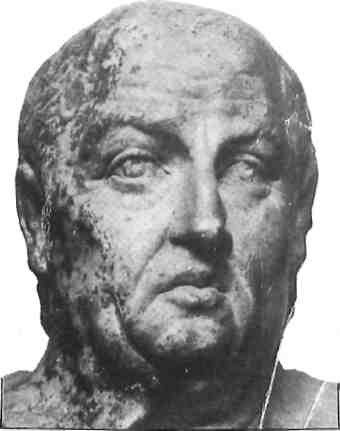Christianity with its inherent message of love and forgiveness has throughout its long history been strangely intolerant and unforgiving in its attitude towards suicide, making the paganism of the ancient world appear, in this sphere, positively benevolent. Although several denominations of the church have lately begun to show more compassion in dealing with this human dilemma, in many European countries an attempt was until two decades ago still considered a criminal offense, whereas classical Greek and Roman law did not discriminate against it; suicide was largely regarded as a personal affair between man and his conscience. It brought no civic punishment and incurred no family disgrace. Even the stern Hebrew Ten Commandments make no mention of it.

From a moral standpoint, the early Greek philosopher/mathematician Pythagoras and his school laid the premise that life was a gift from the gods: it was therefore impious to repudiate it and interfere with the divine rhythm. It was a precept adopted in the main by the later classical philosophers who, despite the lack of state or religious censure, generally looked upon suicide as regrettable or unmanly; a prevailing view summed up in Euripides’ maxim “Wise men are not angry with the gods in misfortune”. However, the philosopher Plato in The Laws believed it morally acceptable. In grave and debilitating illness, an ethical stance was mirrored in practice, common at that time among Aesclepian doctors, who stopped administering medicine to patients deemed incurable; in contrast to Hippocrates and, consequently, the Hippocratic Oath, which, perhaps, was based on Pythagorean concepts. Plato’s greatest pupil Aristotle (in whose era -the fourth century BC – the strange custom occasionally appeared of burying “the hand that did the deed” separately from the body) completely rejected his teacher’s theory and the prevailing medical practice along with all suicide for whatever reason: “To die to escape from poverty, love or any that is painful is not the mark of a brave man but rather a coward.”
By and large the reasons for taking one’s own life were the same before Christianity became an official creed as after it but there were some differences. Guilt as a cause became much more frequent after the death of Christ, with Judas, who hanged himself out of remorse, and Pontius Pilate, who reputedly took his own life while in exile near Vienne in Gaul, providing two early examples. Fits of insanity, depression and welt-schmerz, presumably just as prevalent then as now, were seldom mentioned as grounds for suicide in antiquity. Rather, such deaths were thought logical if lamentable, given the severe problems under which the victims labored at the time. On occasion the act was perpetrated when sanity had been regained after temporary derangement, as in the case of the Homeric Trojan war hero, Prince Ajax. Second only to the great Achilles in strength and courage it was he who retrieved the latter’s body from the enemy. With some justification he expected to inherit Achilles’ “god wrought” armour; when it was given instead to Odysseus, he rushed out of the tent, mad with rage and disappointment and began hacking at sheep thinking they were the enemy. It was only when he had regained his wits and felt that by being denied this supreme prize for valor his life was dishonored, he fell on his sword. His comrades accepted his personal decision to die by his own hand and honored his life of heroism and noble deeds in full funeral rites after which his ashes were placed in a golden urn and displayed for all to see on a headland at the Hellespont.
Human nature being what it is, love and passion in all their infinite variety have, throughout the millennia always provided a steady trail of suicides. Greek mythology is full of tales which understood and acknowledged the whole gamut of emotional frailty; the virgin bride Cleite hanged herself rather than face life without the luckless Cyzicus who had been killed in error by the Argonauts. Male fidelity and devotion also showed itself in Haemon, Prince of Thebes, who took his own life at the feet of his beloved Antigone who had hanged herself to avoid the slower death of being buried alive in a vault; the sentence meted out by his father the king. Love, seldom so pure, was usually liberally spiced with other mixed passions. “Hell hath no fury…” they say, and revenge certainly tinged the death of Phaedra who also hanged herself rather than suffer the tyranny of unrequited desire for her stepson Hippolytus but at the same time “let it be known” that he was the offender. His outraged and jealous father, Theseus, called, rather oddly, on the sea god to avenge him and poor innocent Hippolytus was thrown from his horse into the raging waves although he was fittingly brought back to life by the mythical medical skills of Aesclepius.
As in mythology no less in classical history with its double suicide par excellence in Anthony and Cleopatra. The Roman general, debauched and broken by his raging infatuation with the manipulative Egyptian queen and egged on by her ambition in his disastrous bid for imperial power had no dignified courses left open to him after his crushing naval defeat off the Greek coast at Actium and threw himself on his sword. Deprived of his necessary protection, proud Cleopatra, last of the Macedonian Ptolomaic line, cheated Rome out of the spectacle of her being dragged through its streets in chains by settling herself in her luxurious tomb in Alexandria and letting her asp do its work.

It was not love but over-reaching ambition which had earlier caused Anthony’s rival generals Brutus and Cassius to fall on their swords, when on the broad plain at Philippi in Macedonia they too had failed in their bid for Caesar’s cloak. Beaten militarily and wrong-footed politically they had chosen a “soldier’s death” rather than face humiliating trials and summary execution as traitors. And many were the foreign leaders who, after futile attempts to throw off the stranglehold of the Pax Romana, had been hounded to suicide – from Mithridates, King of Pontus to Budicca, Queen of the lceni in Britain.
In the sickening purges which often discredited the Roman Empire, espe-cially during the paranoic instability of Caligula and Nero, suicide became a useful imperial ploy for getting rid of unwanted opposition. Prominent citizens “suspected of sedition” were offered the dubious privilege of taking their own lives, thereby avoiding the farce of a trumped-up trial, public death and confiscation of all property. Ever practical, most Romans chose the offer which at least enabled their fami-lies to keep their estates and fortunes. The renowned stoic, Seneca, his brothers and their friend the poet Lucan all perished in this way, along with thousands of others. In the end Emperor Nero himself was forced to seek refuge in suicide rather than be torn to pieces by his many outraged enemies.
One major philosophy at odds with the Greek classical mainstream of thought as regards suicide was Stoicism. Since its foundation by Zeno in fourth century BC Athens, it had generally advocated that dying by one’s own hand was in keeping with moral freedom – “The wise man withdraws from life’s banquet in just the right way under the right conditions” – and both Zeno and his successor died by suicide. They also.believed that in certain circumstances a “man’s self respect might invite, as an act of supreme nobility, his suicide”. The famous Roman states-man Marcus Porius Cato embodied this principle when he carried out his much
publicized self-inflicted death in protest against Julius Caesar’s heavy-handed appropriation of the Roman republic. Taking one’s own life in this way has always posed a thorny philosophical problem, especially in Christian times. Is the victim in this case a weak character who cannot face “the slings and arrows of outrageous fortune” or a hero who lays down his precious life for his beliefs or his country? Society throughout the intervening centuries has often chosen, perhaps rightly, to heap suicides with posthumous honors and accord them a laudatory place in history.
This moral dilemma was inherited by the early church fathers during the twilight of the Roman Empire when suicide had reached almost epidemic proportions and caused them to debate long and hard as they hammered out the basis of Christian dogma. Suicide was a particularly tough nut to crack: after all they had a clear example in the scriptures – Samson – what was to be done about him? He was in the end exonerated and accepted as a hero dying for his fellow countrymen by bringing the temple roof crashing down “upon the lords and all the people therein” although the Old Testament clearly states that he did it to be “avenged of the Philistines” for their blinding him. Revenge in the circumstances was an understandable emotion but hardly a heroic one. As for the normal run of wretched suicides, the first ecumenical councils finally decreed like Pythagoras that it was an impious act to take one’s own life but, unlike the Greek and Roman philosophers, they adopted a vengeful and unchristian attitude towards it.
Those pitiable creatures were to be further punished with posthumous excommunication, denied sanctified burial and condemned to eternal damnation – a harsh and unforgiving outlook which has survived one and a half millennia and more, well into our time. It is not so long ago historically that the body of a suicide victim was dumped at the local crossroads with a stake through its heart for all to mark and tremble at. Even in our would-be enlightened days, attitudes towards suicide are only now beginning to be reappraised more sympathetically by churchmen and society alike.







